Hospitality and catering is a fast-paced industry with lots of opportunities for growth. It’t one of the largest employers in the world, with millions of workers across different sectors and job roles. Working in this industry can be very rewarding, but you need to have the right resume and cover letters to help you stand out from the crowd when applying for roles. In this article, we’ll introduce you to some useful tips and examples to help you write an effective hospitality and catering resume. Whether you are looking for your first job in this field or want to switch roles, it’s important to showcase your skills and experience as effectively as possible. You may be wondering why we have two separate articles on resumes if they’re so similar. The truth is that there are subtle differences between these two document types that make them best suited for particular job applications. Depending on your circumstances, one type might be more suitable than the other; however, if you would like to apply for both roles then we suggest using both document types at once.
Hospitality and Catering Resume Example and Writing Guide

Download This Hospitality and catering Resume as PDF
Sous chef Resume Example
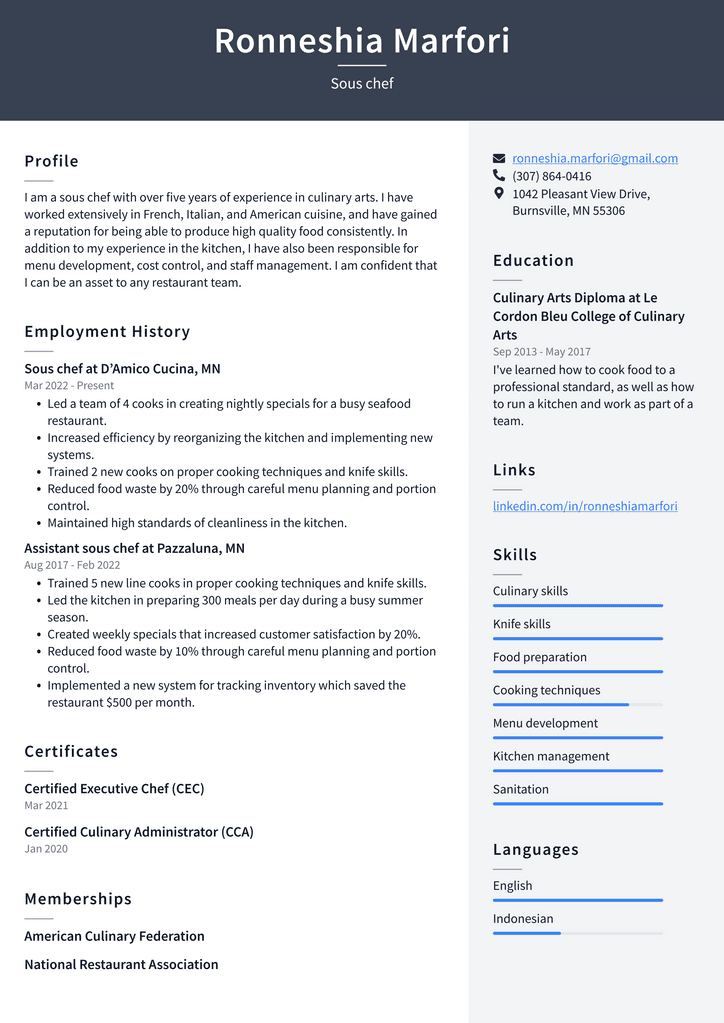
Download This Sous chef Resume as PDF
Caterer Resume Example
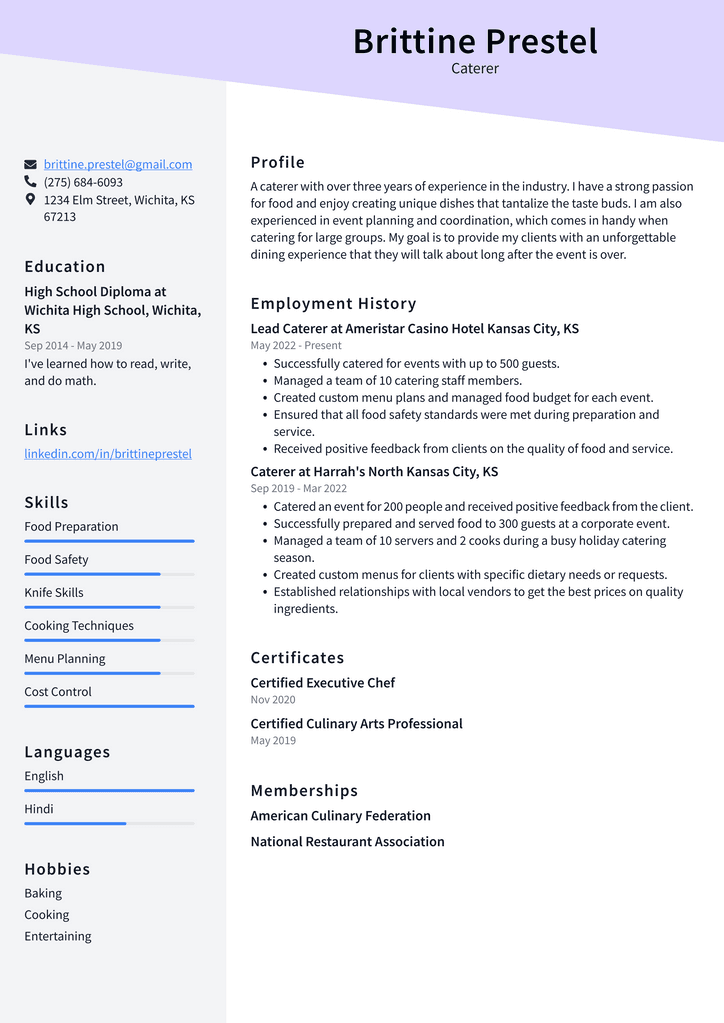
Download This Caterer Resume as PDF
Chef Resume Example
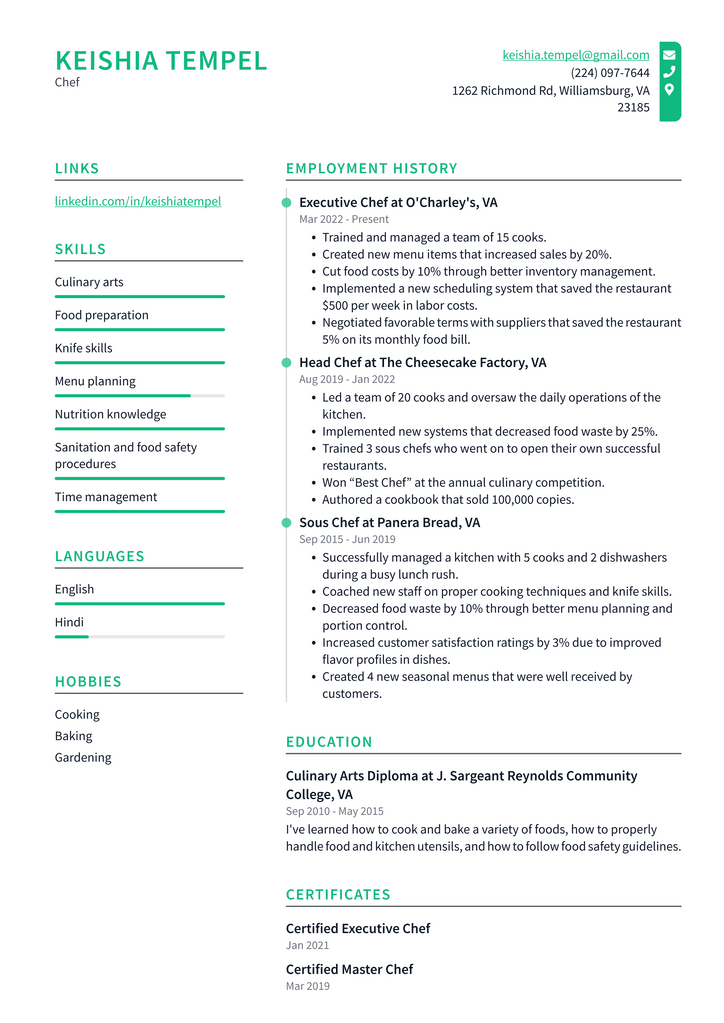
Download This Chef Resume as PDF
Kitchen manager Resume Example
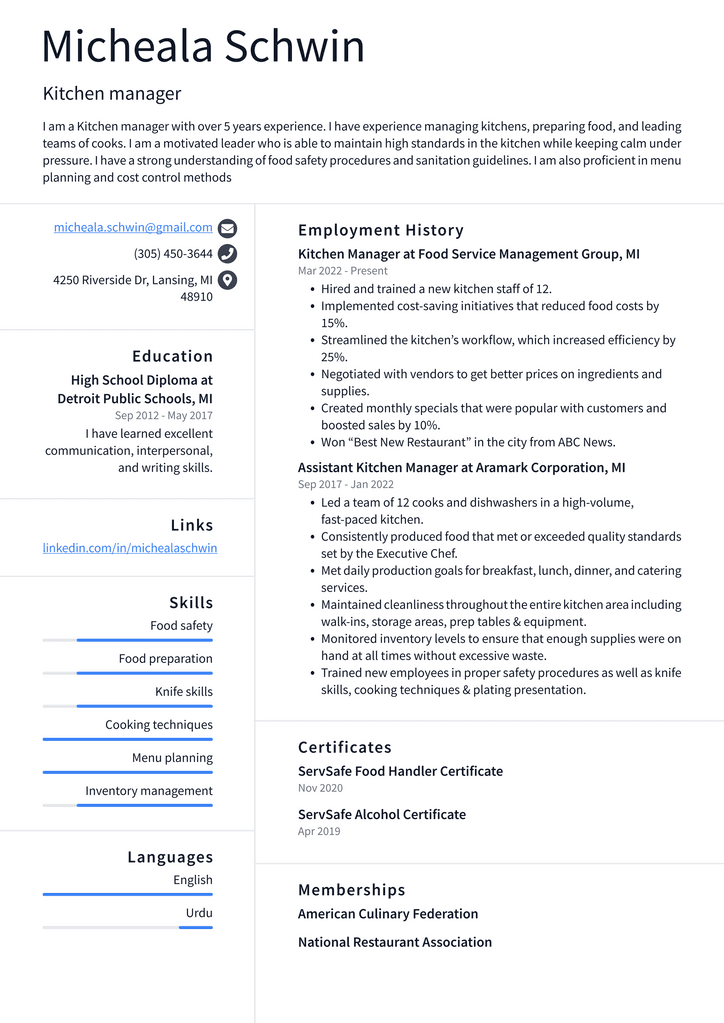
Download This Kitchen manager Resume as PDF
Food and beverage manager Resume Example
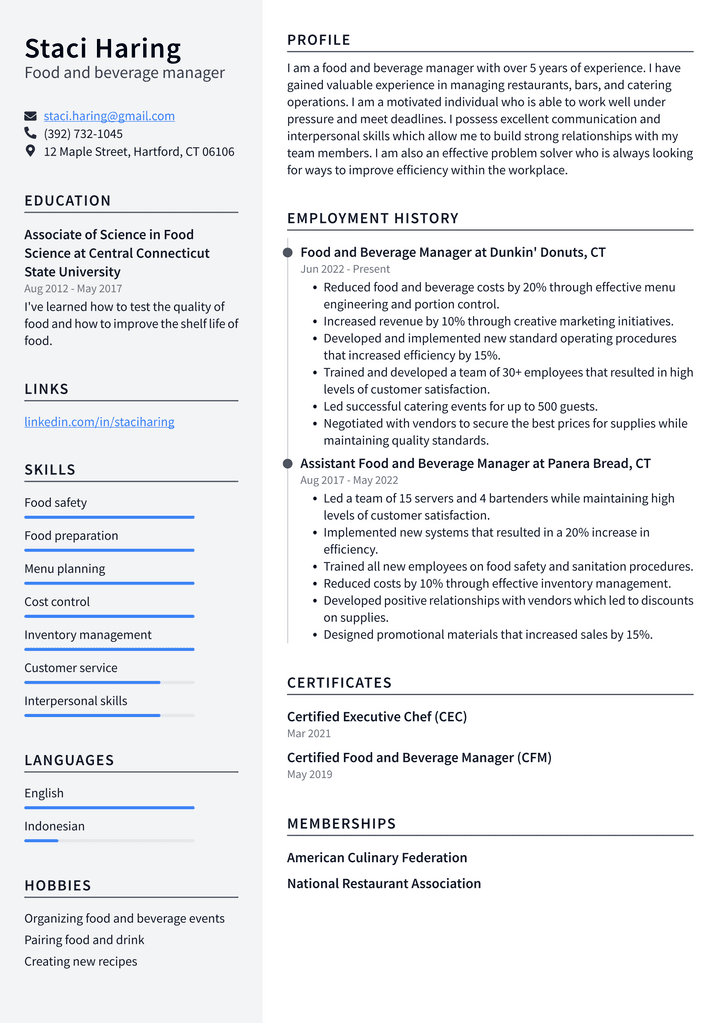
Download This Food and beverage manager Resume as PDF
Head chef Resume Example
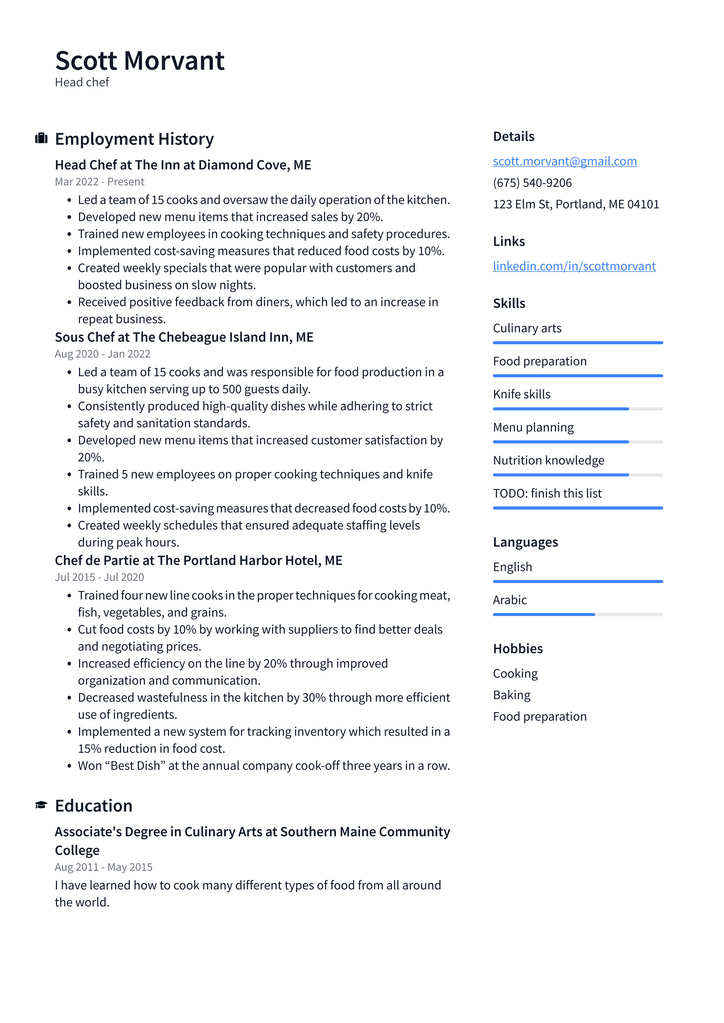
Download This Head chef Resume as PDF
Resume Tips for the Hospitality and Catering Industry
When it comes to writing your resume, there are certain tips and tricks you can follow to improve your overall effectiveness. These aren’t one-size-fits-all rules, but common pitfalls that many people fall into without realizing it. Simply avoiding these mistakes can help you stand out from the crowd and get you noticed by hiring managers and recruiters. One of the first things to think about is the order in which you present your information. Hiring managers and recruiters will often glance over your resume for just a few seconds, so you’ll need to make the most of this limited attention span.
Use action words
While everyone likes to think they’re detail-oriented, the reality is that hiring managers are generally looking for strong action-oriented people to fill their vacancies. The best way to show that you’re the type of person who takes things into their own hands is to use action words in your resume. This doesn’t just apply to verbs, but also to the way you describe your work experience. If you were a supervisor or manager, you should say so right away. If you’re applying for an accounting role, for example, you can start off by listing the various accounts you oversaw.
Include a list of your skills
If you’ve worked in hospitality or catering for any length of time, you’ll know there’s a general list of required skills and traits. Communication, organization, and attention to detail are just some of the key traits that employers commonly look for. Of course, with such a large industry, there are many different specializations and skill sets that are valued by employers. It’s important to list all of the skills you have on your resume, but it’s even more important to know the order in which to list them. It’s a common mistake to just list the skills you think are important, but that can often lead to your resume being ineffective. Think about the order in which you should list your skills and try to group them together.
Showcase your most relevant experience first
One common, but serious, mistake people make when writing their resume is to try and cram in everything they’ve ever done. Convincing employers that you are the right person for the job is key, and you only have a few short paragraphs to do it. This means you need to pick out the most relevant and important experience from your career and place that towards the beginning of your resume. While it’s important to include all of the roles you’ve held, it’s just as important to place them in the correct order. You may have many years of experience in the field, but you may need to place that lower on the document if it’s less relevant than the last few years of experience. Pick out the most important experience from your career and place that at the top of your resume.
Mention any specialist equipment you can operate
Hospitality and catering jobs often require their workers to use specialist equipment. Whether you’re working in a kitchen or serving guests at a hotel, there may be some equipment you use more often than others. While it’s important to mention the equipment you use most often in your resume, it’s also important to mention the other pieces of equipment you know how to operate. Employers often value people who can be slightly more flexible. They may need you to jump into another role from time to time, so it’s important to show that you have the skills and experience to do this. If there is any equipment that you use often, make sure to mention it in your resume. This will show potential employers that you have the necessary skills to work in that particular industry.
Sum up your core strengths in the final paragraph
While you can’t just list your skills and past work experience on your resume, it’s important to show that you have the right core traits for the job. Employers often use psychological tests to identify the best candidates for a specific role, but it’s also important to show that you have the right personality and skills through your resume. The best way to do this is to write a final paragraph that sums up your core strengths and skills. This is your last chance to stand out from the crowd before the employer picks up the phone and calls you for an interview.
Hospitality and Catering Resume Example
Now that we’ve looked at some general tips for the best ways to write a resume, let’s take a look at an example of a hospitality and catering resume. This is for a candidate named John who has worked in the catering industry for the past five years. He’s applied for a position as a head waiter at a chain of restaurants in the hospitality industry.
Conclusion
There are many things to consider when writing a resume, but the most important thing is to keep it simple. A good rule of thumb is to try and keep your resume to two pages. This will help you avoid rambling and ensure the most important information is included. When writing a resume, the most important thing is to stay true to yourself. Don’t try to be something that you’re not. You should write the way you talk and show the hiring manager who you really are. And with that, we think it’s time to sign off. We hope that you’ve enjoyed this article and have come away with some useful tips and ideas for your own resume. Now it’s time to put those skills into practice and get writing!